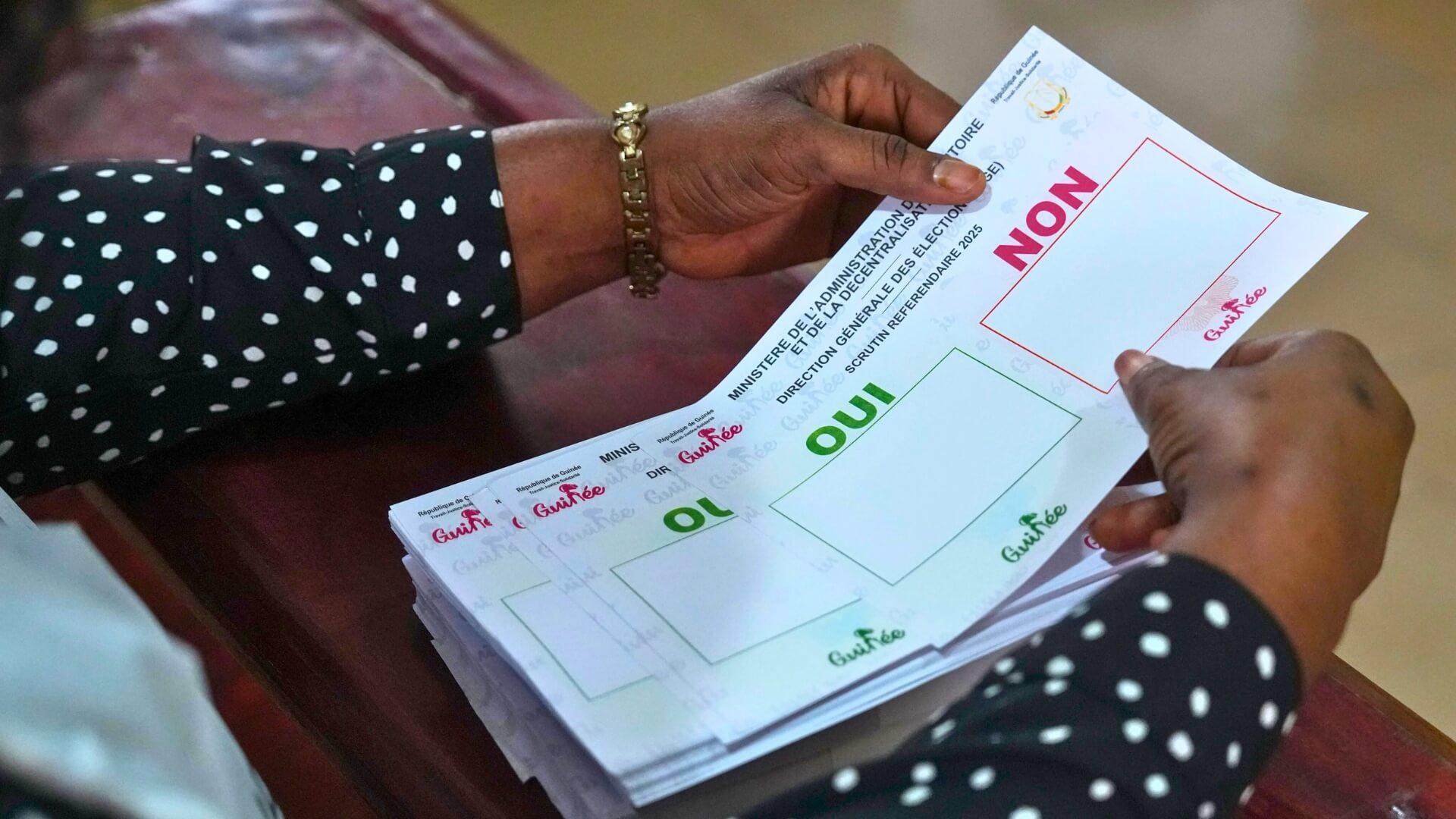Guinea’s new constitution, backed by over 90% of voters, reshapes the nation’s political future. While supporters hail stability and reform, critics warn of restricted freedoms. With elections set for December, Guinea faces both risks and opportunities on its path to transition.
Official results show over 90% of Guinean voters endorsed a new constitution in Sunday’s referendum. Turnout was notably high, with more than 4.8 million ballots counted and up to 86% participation.
The new charter extends presidential terms from five to seven years, introduces a Senate, and allows a military head of state to seek office—a provision widely seen as benefiting Colonel Mamady Doumbouya.
Colonel Doumbouya hailed the result as “a rebirth for Guinea,” while Prime Minister Bernard Gomou called it a “victory for stability.” Business leaders voiced optimism about attracting investment, and artists like Mory Kanté and footballer Naby Keïta encouraged unity and respect for all views.
Opinions on the streets are mixed. Some citizens welcomed the prospect of peace and stronger laws, but university students and opposition supporters expressed a desire for reforms beyond new faces and voiced concerns over civic freedom.
Major opposition parties boycotted the vote, alleging unfair restrictions and intimidation, while suspended media outlets cited constraints on the campaign period.
Regional organizations issued cautious praise. The African Union and European Union welcomed the peaceful vote but called for inclusivity and media openness. The US and ECOWAS urged respect for opposing views and fair campaign conditions.
Analysts see the referendum as a turning point toward elections scheduled for December 2025. However, critics worry the removal of previous limits on junta leader candidacy could lead to further power consolidation, repeating historical cycles of military authority.
Civic and international groups stress that the transition must ensure transparent elections and participation from all sectors.
As Guinea prepares for presidential elections, the country faces both opportunity and risk: inclusive development and fair leadership could strengthen the nation’s future, while continued protests or crackdowns could undermine progress.
Leave a comment
Your email address will not be published. Required fields are marked *





